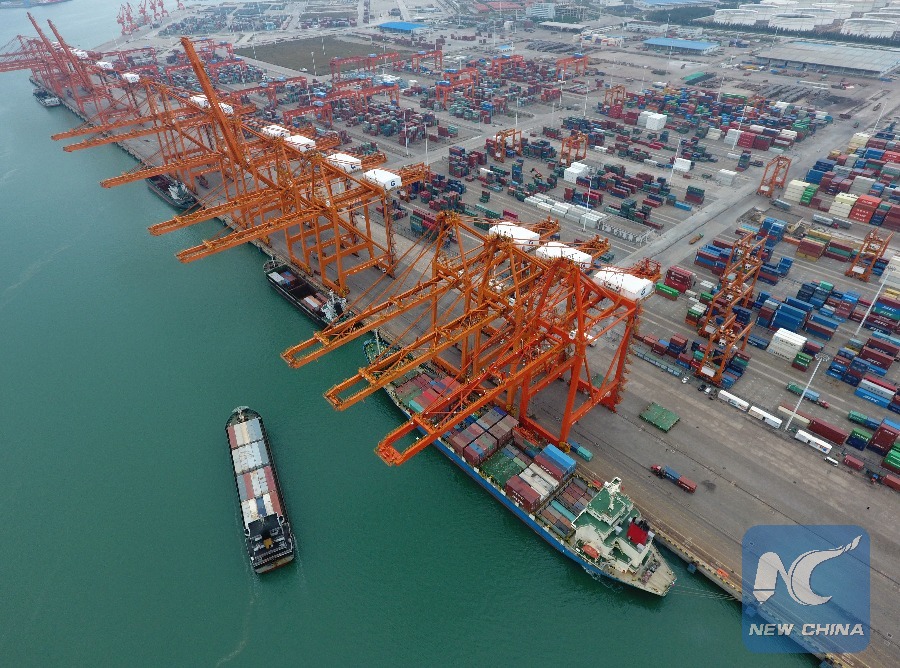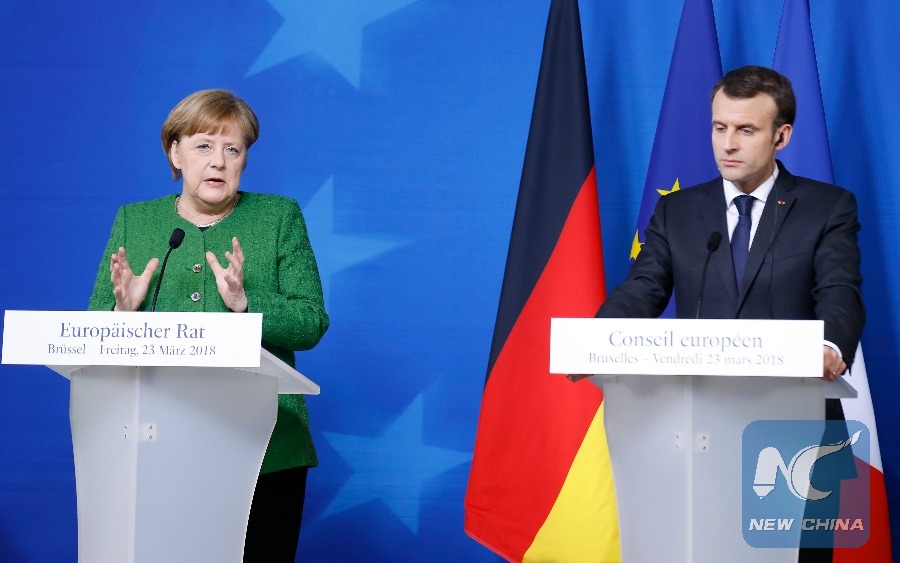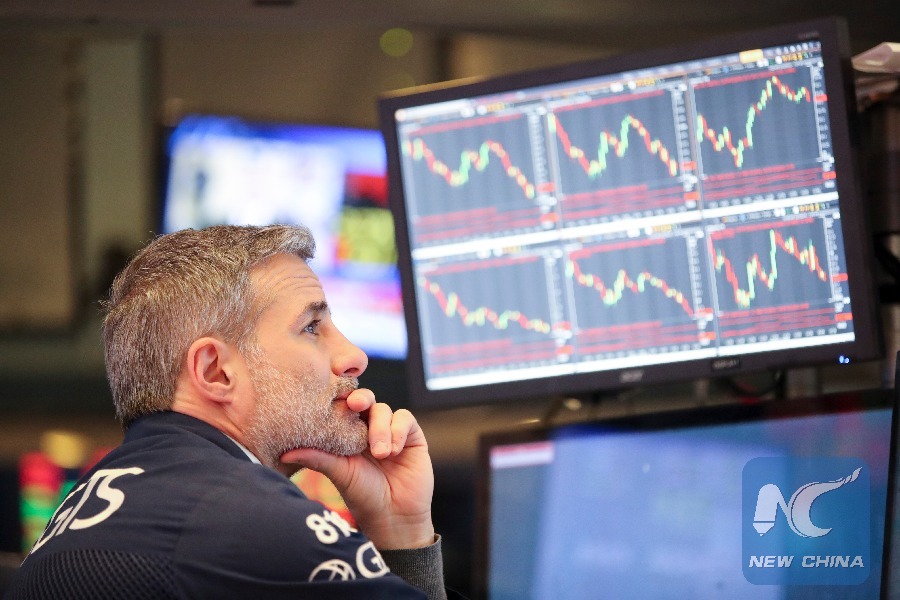
Qinzhou Port is seen in Qinzhou City, south China's Guangxi Zhuang Autonomous Region, Jan. 10, 2018. (Xinhua/Lu Boan)
BERLIN, March 25 (Xinhua) -- The U.S. government's latest tariff plan on Chinese imports has raised concerns of various quarters of German society that the trade protectionist move will lead to "multiple losses."
U.S. President Donald Trump on Thursday signed a memorandum that could impose tariffs on up to 60 billion U.S. dollars of imports from China and restrictions on Chinese investment in the United States.
The threat of a trade war has become an important concern of the European Union (EU)'s spring summit this week in Brussels, Belgium. German Chancellor Angela Merkel stated during the summit that the EU countries unanimously support free trade and oppose trade protectionism.
German Economic Minister Peter Altmaier said he also believed that free and fair global trade is in the interest of all parties.

Germany's Chancellor Angela Merkel (L) and France's President Emmanuel Macron (R) attend a news conference after the spring EU Summit at EU headquarters in Brussels, Belgium, early on March 23, 2018. (Xinhua/Ye Pingfan)
In addition to the appeal from politicians, German media, business leaders and analysts also voiced their disapproval of the U.S. tariff plan.
Leading business newspaper Handelsblatt published on Friday a commentary titled "Trump's trade war is doomed to failure," arguing that his desire to knock open the door of the Chinese market through trade war is doomed to fail, and it is more of a hindrance than a help to the United States and other countries.
Through the trade war, Trump will only learn the basic common sense of foreign trade: the high costs caused by tariffs will ultimately be paid by U.S. companies and consumers, it said.
Trade disputes must be resolved ultimately based on rules within the framework of the World Trade Organization, it added.
"It would be better to tackle the existing problems with negotiations rather than with unilateral tariff measures," Gabriel Felbermayr, director of the Center for International Economics at the Ifo Institute for Economic Research, a Munich-based institution, told Xinhua on Friday.

A trader works at the New York Stock Exchange in New York, the United States, March 22, 2018. U.S. stocks ended lower on Thursday, with the Dow plunging over 700 points, after the U.S. President Donald Trump announced to impose tariff on imported products from China. (Xinhua/Wang Ying)
Martin Wansleben, chief executive of the Association of German Chambers of Industry and Commerce, said the U.S. action to impose large-scale tariffs on Chinese goods is in disregard of international rules and agreements, and is tantamount to "playing with fire," which will eventually lead to no winners.
In a world where all economies are closely interdependent,and the U.S. move will also affect Germany and the EU as a consequence, Wansleben added.
Shi Shiwei, a visiting professor at the Free University of Berlin, said the U.S. overbearing unilateralism approach not only damages the world's two largest economies, but also inflicts passive impact on German and European economies and poses a threat to the global economy.
The German financial market is also deeply concerned about the possibility of a trade war triggered by the United States.
Market analysts said that investors are bearing intensifying worries about the China-U.S. trade relationship, adding that the financial market could be more volatile in the future.

